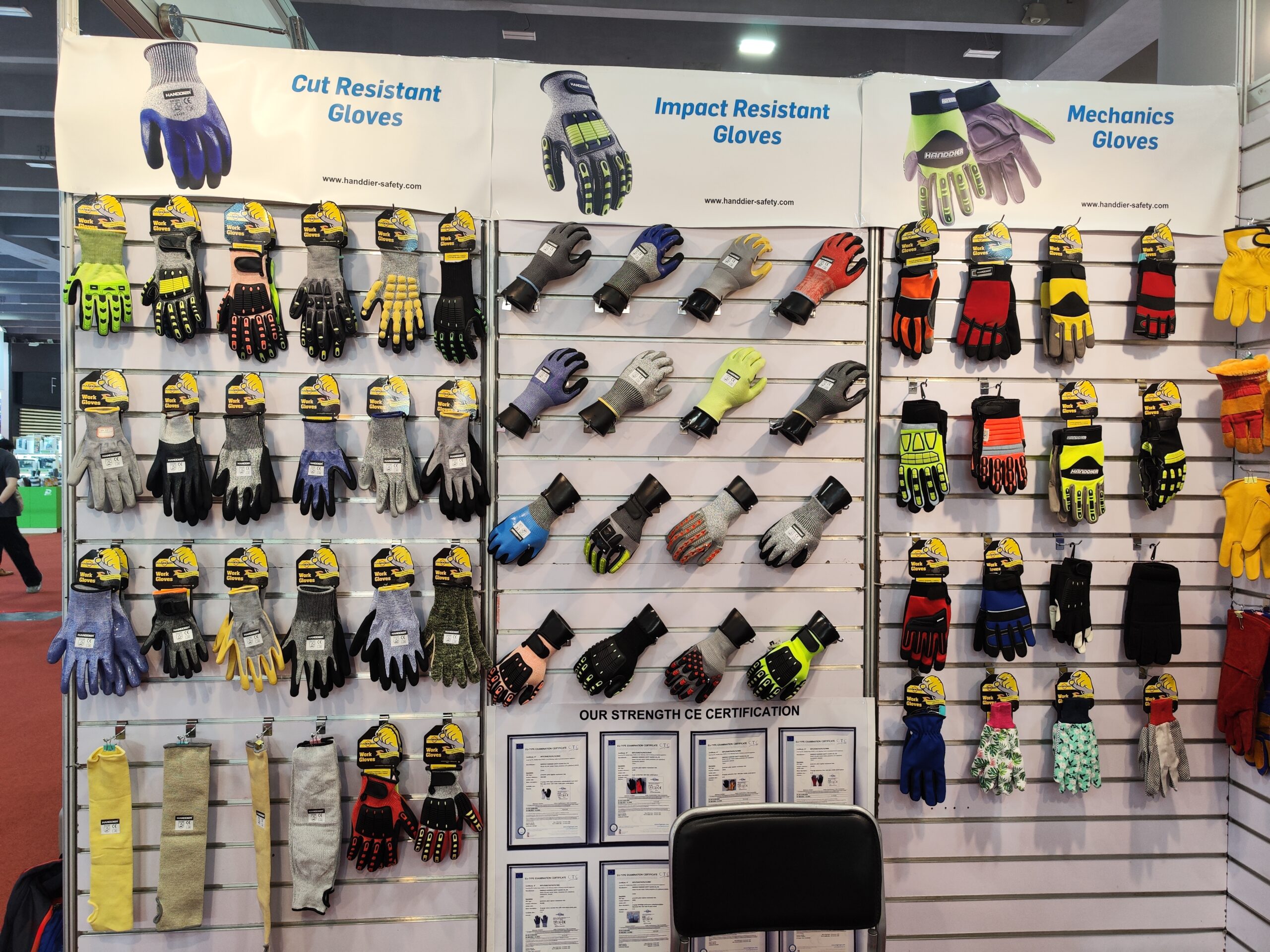
Choosing the best work gloves for your job is essential for safety and comfort. Whether you’re working with chemicals, sharp tools, or heavy machinery, having the right gloves can make all the difference. In this article, we’ll explore the best types of work gloves, the most durable materials, and the ones that offer the highest protection for specific tasks.
The best work gloves depend on the job you’re doing. Whether you need protection from cuts, heat, or chemicals, selecting the right gloves is crucial for safety and efficiency.
From construction to healthcare, every profession has its own ideal glove type. But with so many options on the market, it can be overwhelming to choose. Let’s break it down into simple categories to help you make an informed decision.
What are the best types of work gloves?
The best types of work gloves vary depending on the tasks you’re performing. Here are some of the top categories to consider:
1. Leather Work Gloves
Leather gloves are a go-to for many industries. They are durable, flexible, and offer excellent protection against abrasion and punctures. Leather is particularly suited for tasks like construction, landscaping, and general labor.
2. Cut-Resistant Gloves
If you’re working with sharp tools or materials, cut-resistant gloves are essential. These gloves are made from high-strength materials like Kevlar® or stainless steel mesh, providing superior protection against cuts and slashes.
3. Nitrile-Coated Gloves
Nitrile gloves are perfect for tasks that involve handling chemicals, oils, or greasy materials. The nitrile coating offers resistance to punctures, oils, and many solvents, making these gloves ideal for automotive, manufacturing, or cleaning tasks. You can learn more about nitrile gloves' chemical resistance.
4. Rubber Work Gloves
For industries where water or chemicals are involved, rubber gloves provide a high level of protection. These gloves are waterproof and chemical-resistant, making them ideal for healthcare, food processing, and cleaning tasks.
5. Mechanic Gloves
Mechanic gloves offer a balance of comfort and protection. They’re designed to protect hands while providing flexibility and dexterity, making them perfect for automotive and machinery work. These gloves are typically made from synthetic materials and have extra padding to absorb impacts.
6. Thermal Insulated Gloves
Thermal gloves are essential for cold weather or when working with hot materials. These gloves are insulated with materials like Thinsulate® or fleece, providing warmth and protection without compromising on dexterity.
What is the most durable material for work gloves?
When it comes to durability, the material of the glove plays a huge role in how long it will last and how well it will perform under tough conditions.
1. Leather
Leather is known for its toughness and ability to withstand wear and tear. Full-grain leather, in particular, is highly durable and resistant to abrasions, making it ideal for construction, farming, and manual labor tasks.
2. Kevlar®
Kevlar® is a high-strength, heat-resistant synthetic fiber. It's often used in cut-resistant gloves because it can endure sharp edges while offering flexibility. Kevlar® gloves are perfect for jobs involving glass, metal, or heavy machinery.
3. Nitrile and Rubber
Both nitrile and rubber are highly durable materials that resist punctures, chemicals, and moisture. Nitrile is especially puncture-resistant, while rubber provides excellent chemical resistance. These materials are commonly used in gloves for industrial and healthcare settings.
4. Stainless Steel Mesh
For the ultimate durability and cut protection, stainless steel mesh gloves are unbeatable. These gloves are often used in industries like food processing or glass handling, where workers face a high risk of cuts from sharp objects.
5. Synthetic Blends
Materials like polyester, nylon, or spandex blends can be very durable when combined with other fibers. These materials offer a balance of comfort and long-lasting protection, especially in general use gloves.
What are the most protective gloves?
When safety is the priority, protection from cuts, impacts, and other hazards is key. The most protective gloves are designed to address specific risks.
1. Cut-Resistant Gloves
Made with materials like Kevlar® or Dyneema®, cut-resistant gloves are ideal for workers who handle sharp tools, glass, or metal. These gloves are tested to meet high protection standards and are perfect for industries like construction and manufacturing.
2. Impact-Resistant Gloves
Impact-resistant gloves feature additional padding or reinforced areas that protect the hands from blows, vibrations, or falling objects. They’re essential for workers in construction, logistics, and manufacturing. Learn more about the importance of impact-resistant gloves.
3. Chemical-Resistant Gloves
For workers handling hazardous chemicals, rubber, neoprene, or nitrile gloves are necessary. These materials offer protection against solvents, acids, oils, and other dangerous substances, making them ideal for laboratories, factories, and healthcare settings.
4. Arc Flash Gloves
Electrical workers require gloves that can withstand high-voltage electrical arcs. Arc flash gloves are made with special materials that can resist heat and electricity, ensuring safety during electrical work. Learn more about arc flash gloves.
5. Fire-Resistant Gloves
Fire-resistant gloves are essential for anyone working with flames or high temperatures. Made from materials like leather or aluminized fabrics, these gloves protect against sparks, molten metal, and extreme heat. Welders, firefighters, and metalworkers rely on these gloves for safety.

What type of gloves are best when working around heat or flames?
When working around heat or flames, it’s important to choose gloves specifically designed to handle high temperatures and protect from burns.
1. Welding Gloves
Welding gloves are made from thick, heat-resistant materials like leather or aluminized fabric. They offer superior protection against sparks, molten metal, and intense heat, making them a must-have for welders and metalworkers. Learn more about welding gloves.
2. Aluminized Gloves
Aluminized gloves are used in environments where extreme heat is present, such as glassblowing or metal foundries. The aluminized fabric reflects heat, keeping your hands cool while still providing flexibility and protection.
3. Heat-Resistant Gloves
For workers exposed to high temperatures but not necessarily flames, heat-resistant gloves made from materials like Kevlar® or Nomex® provide protection. These gloves are often used in industrial settings where workers handle hot machinery or materials.
4. Insulated Gloves
If you’re working in cold environments or dealing with both extreme heat and cold, insulated gloves are essential. These gloves are typically made with thick insulation like Thinsulate® to keep your hands warm while offering heat protection for jobs like construction or outdoor work.
Conclusion
Selecting the best work gloves depends on the task at hand, the materials you're working with, and the level of protection you need. Whether it’s for handling chemicals, working around heat, or dealing with sharp tools, choosing the right gloves is essential for both safety and comfort. Always make sure to select gloves that are suited for the specific risks in your workplace to ensure maximum protection.
